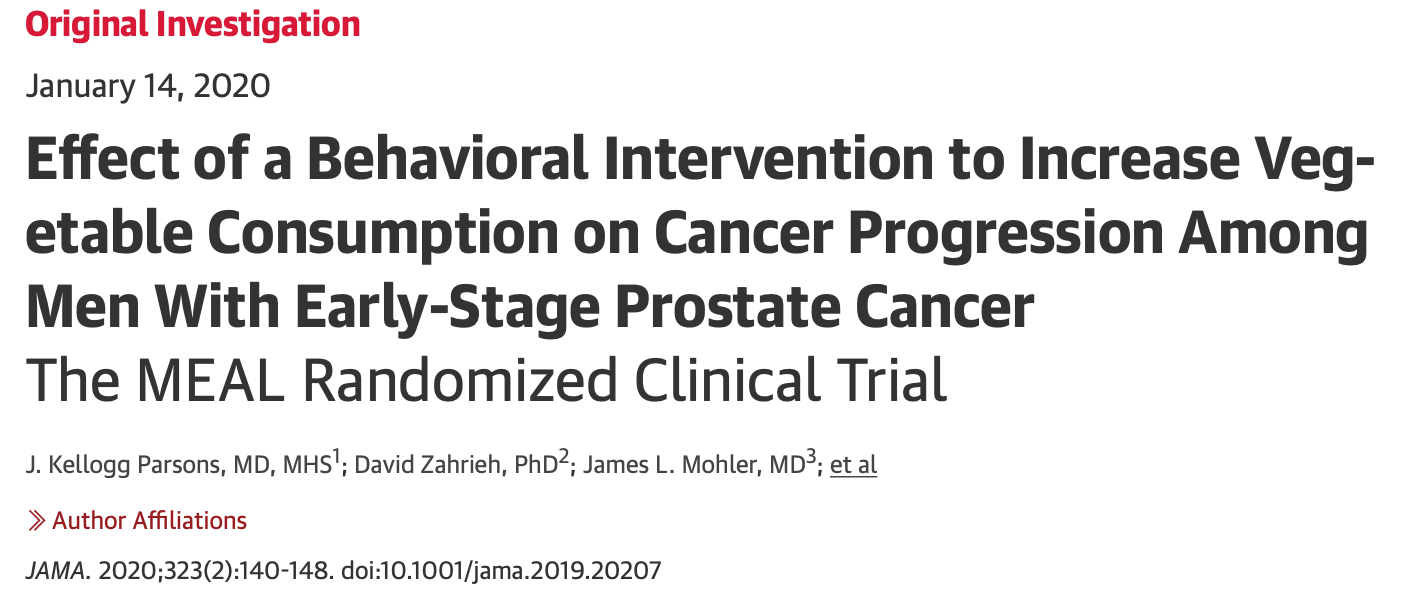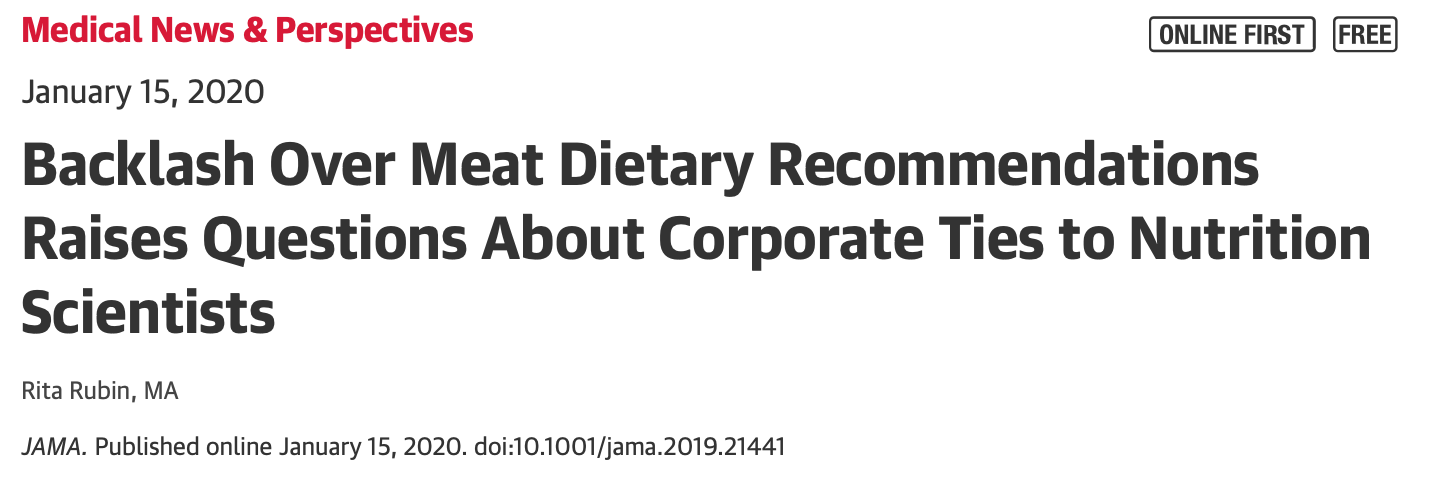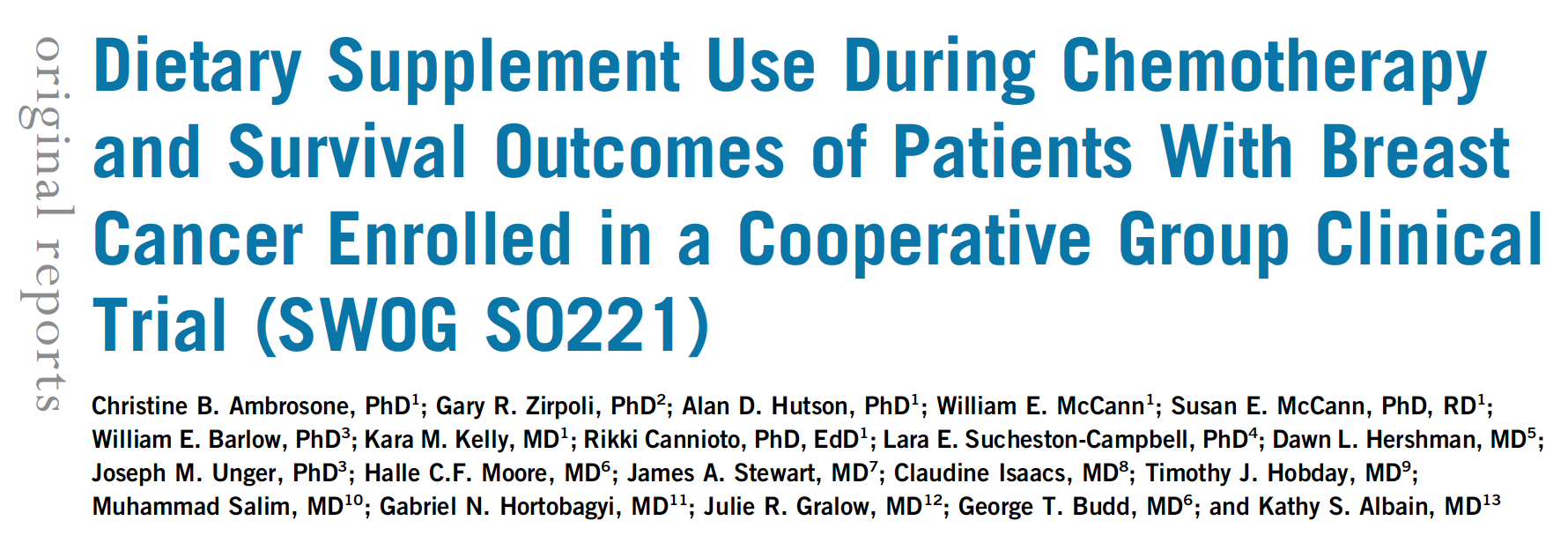A review of the weeks plant-based nutrition news 19th January 2020
This week has seen the publication of several interesting papers on nutrition and lifestyle. There has also been controversy with the reputation of several nutrition researchers called into questions.
HEALTHY LIFESTYLE & ILLNESS-FREE LIFE EXPECTANCY: We know that healthy lifestyle behaviors can have a profound effect on health and disease prevention. We don’t just want to live longer but we want to live without illness. This study asked whether a healthy lifestyle can increase life expectancy (LE) free of chronic disease. The data are from the Nurses’ Health Study and the Health Professionals follow-up Study and included over 100,000 men and women. Five healthy lifestyle factors were examined 1) never smoked, 2) BMI 18.5–24.9, 3) moderate to vigorous physical activity >/=30 mins/day, 4) moderate alcohol intake, 5) high diet quality score.
What was deemed a healthy diet? The alternate healthy eating index-2010 score was used. This scores whole plant foods, including whole grains, vegetables, fruits, nuts, & legumes, and omega-3 fats/PUFA with positive markes and red/processed meat, trans fat, sodium & sugar-sweetened beverages/fruit juice with negative marks. So it’s a plant-strong diet.
At the age of 50 years, if women had all 5 healthy lifestyle factors their LE free of cardiovascular disease, cancer and type 2 diabetes was 10 years more than those with no healthy lifestyle factors. For men, the gain in disease free LE was around 8 years. The conclusion; ‘adherence to a healthy lifestyle at midnight-life is associated with a longer life expectancy free of major chronic disease’. There is no pill, procedure or supplement that can have such a profound effect on LE. Of course this study was performed in the US and in lower income countries, other socioeconomic factors will also impact LE.

This is why so many physicians and health professionals are joining the lifestyle medicine movement around the world. Learn more about lifestyle medicine here.
COULD BREXIT BE AN OPPORTUNITY TO IMPROVE THE NATIONS HEALTH?: Regardless of your views on the UK leaving the European Union, it is going to happen. This could be an opportunity to improve the nations health by improving the food environment. Trade policy exerts a powerful influence on risk factors for non-communicable disease since the UK rely heavily on imports to meet dietary requirements. For example, in 2017, 84% of fruits and 43% of vegetables in the UK were imported. Low consumption of fruits and vegetables is a risk factor for the development of cardiovascular disease and cancer. A recent paper highlights the impact of various trade policies that may come into place after Brexit. They would all result in an increase in the price of fruits and vegetables leading to a fall in consumption and a potential rise in cadiovascular disease and deaths.
However, the post-Brexit agricultural policy for the UK may present a way of improving the food environment and improving public health. The paper highlighted found that if the UK increased land use for fruits and vegetable production to 10% and 20% of suitable land, this would increase fruit intake by approximately 3.7% and 17.4% and vegetable intake by approximately 7.8% and 37% respectively, in 2030. This could prevent or postpone approximately up to 18 010 CVD deaths between 2021 and 2030. Increased domestic production could also reduce inequalities, with 16% of prevented or postponed deaths occurring among the least deprived compared with 22% among the most deprived. Thus, the UK’s agricultural policy going forward provides an important opportunity to improve dietary intake and associated cardiovascular mortality. Lets hope those in power are listening.

CAN GUT MICROBES BE TRANSMITTED TO OTHERS AND CAUSE DISEASE? This is a really fascinating hypothesis. We are well aware of the importance of the gut microbiome in determining health and disease. Unhealthy gut bacteria are associated with a number of non-communicable diseases; obesity, type 2 diabetes, inflammatory bowel disease and cardiovascular disease. The health of our gut microbiome is determined by a number of factors. Mostly importantly diet, but also smoking, alcohol, exercise, environmental toxins and medications. Authors of this article in Science, hypothesise that unhealthy gut microbiota can be transmitted to other individuals, altering their gut microboes and increasing their risk of various diseases. Well worth reading. Having said this, we mustn’t forget that diet and other lifestyle habits are often shared within families and groups of friends and hence these shared lifestyle factors are also likely to contribute to shared disease risks.

DIET AND EARLY STAGE PROSTATE CANCER: This study investigated whether increasing vegetable and fruit consumption to at least 7 daily servings could decrease cancer progression in men with early-stage prostate cancer over 2 years. The outcome of this study was that prostate cancer progression was NOT delayed/reduced.

Given the impact of fruits and vegetables on cancer prevention, why would this be? My interpretation is that in the presence of established chronic illness, small changes are insufficient to reverse disease. Intensive lifestyle changes are required. For people who are healthy, increasing fruit and vegetable consumption will for sure have further health benefits. Reversing disease requires more. At 24 months in the intervention group, the change in consumption of various fruits and vegetables was small despite being statistically significant. For example total vegetable servings increased by 2 servings per day, dark green vegetable consumption increased by 0.5 servings/day, tomato servings by 0.06 servings/day, cruciferous vegetable servings by 30g/day. Red meat consumption decreased by 7g per day, fat consumption by 1.8g per day and saturated fat consumption by 0.9g per day.
My interpretation would be that moderate changes are insufficient to holt progression of prostate cancer. However, the only lifestyle intervention that has been shown to arrest and reverse early prostate cancer is that conducted by Dr Dean Ornish with intensive changes that included a low-fat whole food plant-based diet, exercise, stress management and social connections. It seems a whole systems intensive approach is needed for established early cancer, which includes the elimination of all prostate cancer promoting foods — meat and dairy — and replacement by whole plant foods. Nonetheless, this current study helps reinforce the required lifestyle changes that are necessary. The more changes made the more likely you are to see benefit.
NEW RED MEAT ‘GUIDELINES’ CONTINUE TO CAUSE CONTROVERSY: The five papers published in Annals of Internal Medicine in Oct 2019 continue to cause controvery. The authors of the 5 papers, despite their data confirming a detrimental effect of red/processed meat consumption on health, proposed new guidelines stating that there is no need to recommend reduction in the current level of red/processed meat consumption, as the gain for health is small and the public do not want to reduce consumption. This recommendation, which is against current consensus and evidence-based guidelines from all international health organisations, inevitably caused a backlash from the medical community and it soon became clear that several authors had financial ties to the meat industry and the journal had to issue a correction about researchers’ undisclosed conflicts of interest.
In this weeks JAMA, an opinion piece raises concerns about the conflict of interests of those nutrition scientists who objected to the publication of the ‘red meat’ papers and who petitioned for a retraction. The article is well worth reading. These scientists include many plant-based advocates who are highly respected in the field, including Dr David Jenkins, Dr Neal Barnard and Dr David Katz. It seems that receiving research funding from any Industry source has the potential to taint your reputation and bring into question your scientific authority. In addition, if you campaign for animal justice, like Dr Barnard and Dr David Jenkins, this is also taken as a significant bias despite their primary research findings demonstrating the benefits of a diet free of animal products. It is a no win situation. Nutritional scientists require money for research and non-industry funding is more and more competitive and difficult to obtain. Having any sort of moral compass can also be used against you when the science supports findings that will hurt the pockets of powerful industry players. Unfortunately, those that suffer the most are the consumers, who have lost faith in scientists and don’t know who to trust or where to obtain reliable dietary advice. With unhealthy diets the leading cause of death globally, we have to do better to inform the public about what constitutes a healthy diet.
PLANT-BASED DIETS FOR CHILDREN: Great to see some balanced and positive coverage of plant-based diets for children on mainstream Canadian news. With Veganuary in full swing, more people than ever signing up and its international reach, the media coverage has been mixed to say the least. The usual scare stories about vegan diets continue to be published despite major dietetic organisations around the world confirming that well-planned vegan diets can support healthy living at all staging of human life. As the number of adults following a vegan diet increase, so will the number of parents wanting to raise their children on a vegan diet. Yet, parents often feel unsupported given then lack of knowledge amongst health professionals, the lack of availability of plant-based meals at school and the continued societal and industry pressure to include cow’s dairy in a child’s diet. Canada has really been forward thinking and true to the science in its 2019 dietary guideline. Dairy is no longer part of the dietary guideline and meat is no longer a ‘food group’. Instead, the consumption of healthy sources of protein is encouraged, chosing plant protein sources in preference to animal sources. Canada has recognised the impact of diet choice on the enviroment and therefore have considered the sustainability of its latest diet recommendations.
A great resources for raising plant-based children has been developed by the Plantrician Project and can be found here.

DIETARY SUPPLEMENTS AND CANCER TREATMENT — A WORD OF CAUTION: One of the commonest questions I get asked as a Cancer Doctor is whether I recommend supplements during cancer treatment. There are very little clincial trial data on which to base my recommendations and therefore I advise patients to obtain vitamins and other micronutrients from a healthy, predominately plant-based diet where possible. This observational study asked over 1000 women receiving chemotherapy for breast cancer whether they were taking dietary supplements. Those patients taking antioxidants (vitamins A, C, and E, carotenoids and coenyzme Q10), iron, B12 and omega-3 supplements before and during chemotherapy had a worse outcome with increased rates of cancer recurrence and death, compared to those not taking supplements. Non-antioxidant supplement and vitamin D did not have an adverse impact. Given the observational nature of the study, it does not prove cause and effect and it may be that those with the worst disease characteristics and other chronic illnesses are more likely to take supplements and thus have an inferior outcome. However, in my view, it’s worth adopting the precautionary principle and not routinely encouraging the use of dietary supplements during chemotherapy until we have more data one way or other.
If you have found this article useful, please follow my organisation ‘plant-based health professionals UK’ on Instagram @plantbasedhealthprofessionals and facebook. You can support our work by joining as a member or making a donation via the website.







